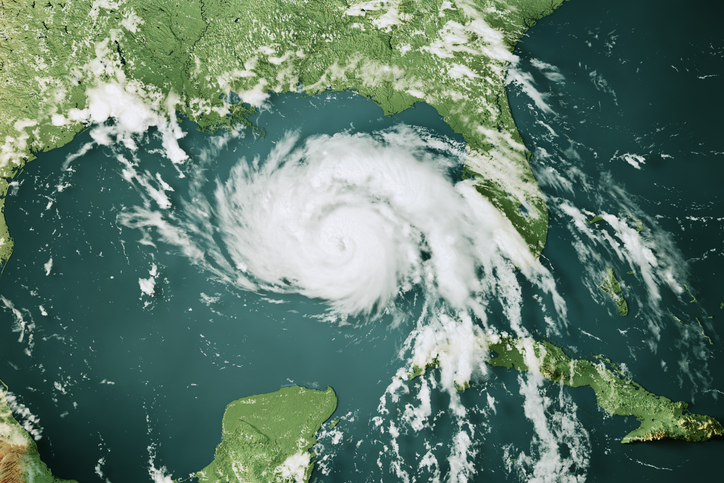
The federal agency tasked with regulating offshore drilling in U.S. coastal waters is taking steps to reduce the likelihood of catastrophic accidents and explosions during hurricanes and other major storms.
The action follows “near misses” at Gulf of Mexico drilling operations during the previous two hurricane seasons.
Hurricane Preparation Takes Several Days Aboard an Offshore Rig
According to a report recently aired on 4WWL, the CBS affiliate in New Orleans, offshore rig owners are now required to report the time needed to evacuate ahead of a storm, known as the “T-Time.” The Bureau of Safety & Environmental Enforcement (BSEE) will also require Gulf operators to send regular progress reports updating the agency on the process of safely shutting in an oil well, lifting heavy equipment off the sea floor, and getting out of the path of a storm.
Shutting down an offshore drilling operation is no easy task. Plugging up a freshly drilled oil well, testing the cement seals and “packers” used to make sure oil and gas can’t escape, and then using a Lower Marine Riser Package (LMRP) to lift the steel riser pipe that can descend a mile or more through the generally takes days.
The near misses that prompted the BSEE to act involved the LMRP. In both cases, rig crews ran out of time to raise their LMRP before gale-force winds hit. While the drilling companies’ T-Time reports showed both rigs had more than enough time for safe evacuations, crews missed the windows to leave and remained aboard to ride out the storms.
1st Incident Involved Transocean Deepwater Asgard Drillship in Hurricane Zeta
The first incident occurred when Hurricane Zeta passed precariously close to Transocean’s Deepwater Asgard drillship in October 2020. The rig was still attached to the well, and the storm blew the ship so far off-center that the riser pipe nearly snapped.
Although no injuries were reported in the immediate aftermath, one crew member came forward two weeks later to say he had been hurt.
BSEE investigators later concluded the accident’s probable cause was an inaccurate weather forecast. A critical contributing factor was the decision to stay latched to the well to attempt to ride out the hurricane.
2nd Near Miss Involved Noble Globetrotter II During Hurricane Ida
The second occurred in August 2021, when the Noble Globetrotter II, a mobile floating drilling rig owned by Noble Corp., got caught in Hurricane Ida’s path. Four crew members were hurt, and 88 barrels of miscellaneous oil polluted the Gulf.
A BSEE investigation found Noble and Shell, which had hired the Globetrotter II, made “poor operational decisions” by “waiting on notification of a direct path (for Ida) rather than following” clear schedules for shutting in the well and leaving the area.
A separate incident report noted that several days went by ahead of Ida’s arrival without any progress being made in shutting down the rig. Noble was also criticized for a last-minute crew change that “delayed an operation already hours behind schedule and resulted in a failed evacuation.”
Undefeated Offshore Injury Lawyers: Call 1-888-603-3636 or Click Here for a Free Consult.
Our Undefeated Maritime Injury Lawyers have won Billions for workers and their families in connection with the worst offshore accidents and explosions in recent history:
- $9.1 Million Settlement for Injured Maritime Worker
- $5.5 Million Jones Act Seaman Settlement
- $3.6 Million Settlement for Jones Act Client
- Highly favorable (and confidential) settlements for 5 offshore workers injured during the BP Deepwater Horizon explosion.
To learn more about our success, visit our “Results” page or Click Here to see what our clients have said about their experience with our firm.
If you or someone you love were hurt while working aboard an offshore drilling platform, drill ship, or support vessel, our attorneys are ready to help. Please call 1-888-603-3636 or click here to fill out our confidential contact form.
We’ll answer your questions, explain your rights, and provide the information you need to make the best decision for you and your family.
Your consultation is free and confidential, and you won’t pay us a dime unless we win your case.